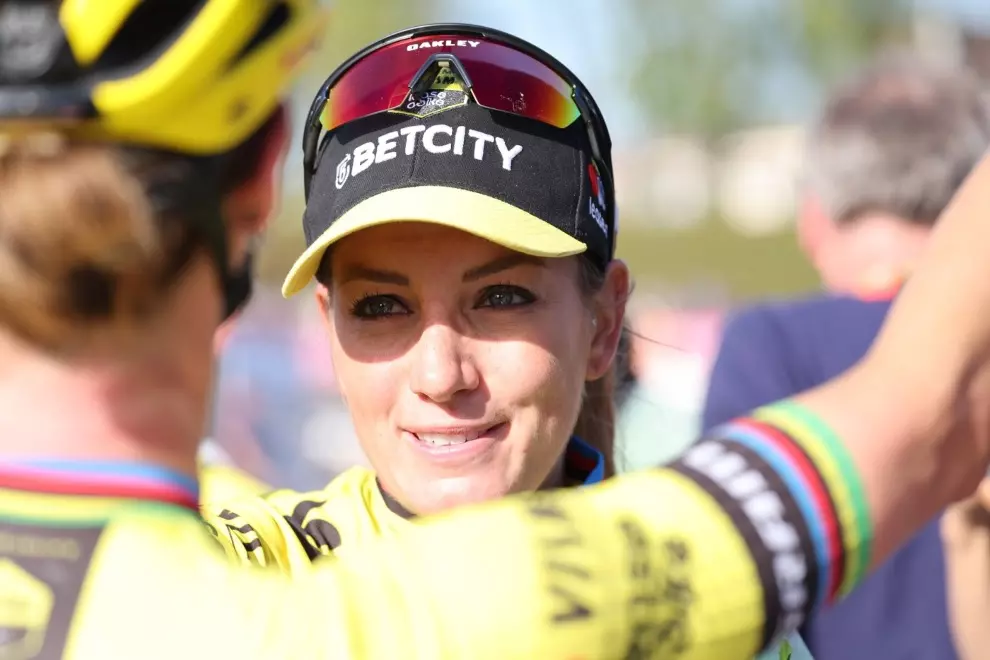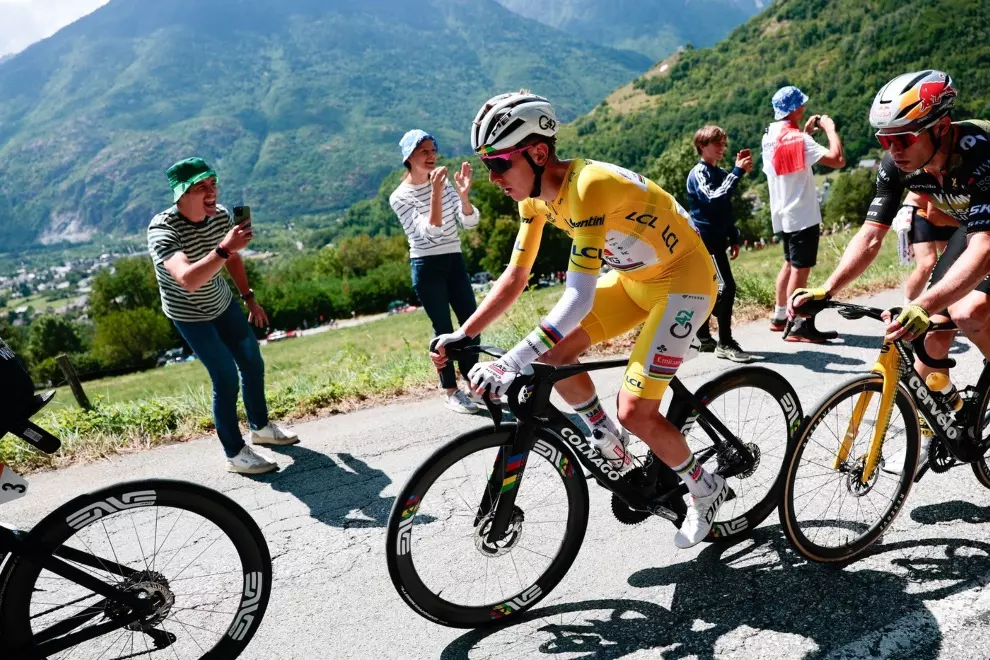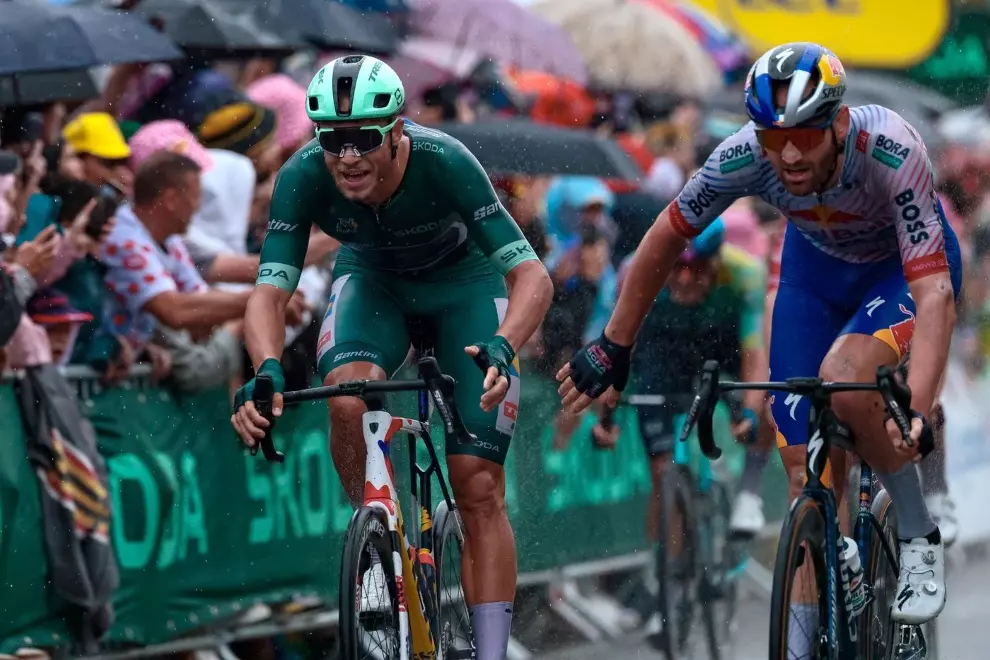The first cyclist ever to hold the world championship in both cyclocross and road racing, van der Poel is one of a new breed of cyclists – which includes van Aert and Tom Pidcock – who came to road racing with special skills developed while riding in off-road disciplines, such as cyclocross and mountain bike cross-country (MTB XC). They are all superb bike-handlers because off-road cycling requires more extreme manoeuvres to navigate rough, irregular terrain such as rockparks and exposed tree roots than do road courses; if you can ride over large rocks, broken ground and deep mud at speed without crashing, then you will know how to ride safely on wet asphalt or cobblestones. Ironically, the skill that failed van der Poel when he crashed was also largely responsible for his victory because all those sharp curves in Glasgow perfectly suited an accomplished off-road rider.
Off-road cycling also makes you tough and resourceful just because stuff happens when riding fast over challenging obstacles. Van der Poel illustrated that when he picked himself up in Glasgow, got back on the bike and, after repairing his shoes while riding, went full gas to the finish line. The bike-handling skills van der Poel learned in cyclocross were also essential when he rode leadout for teammate Jasper Philipsen’s bunch sprints in this year’s Tour de France, helping him to his Škoda Green Jersey victory. The ability to manoeuvre a bicycle at high speed is also invaluable in descending. Tour de France connoisseurs are still talking about Pidcock’s remarkable descent on stage 12 of last year’s Tour, which was the springboard for his stage victory on the Alpe d’Huez. Pidcock won the 2022 cyclocross world championship and is the defending Olympics MTB XC champion.

Bike handling is also important when riding over those rough Flemish cobblestones in spring. Van der Poel has won eight spring Classics, including Milan–San Remo and Paris–Roubaix this year. Van Aert – who has won four cyclocross world championships, including the Under 23 in 2014 – has also won eight Classics, as well as nine Tour de France stages. Pidcock is 24 and has been road racing for only three years. But his 2022 Tour stage victory (thanks to that dazzling descent) and this year’s impressive victory in the Strade Bianche suggest that he has a bright future on the road, which led his team, Ineos Grenadiers, to choose him as one of their riders for the yellow jersey in the 2023 Tour. However, off-road cyclists do not necessarily make yellow jersey winners. Pidcock finished 13th, nearly 48 minutes behind Vingegaard. But because of their unique skillset, they are instead excellent and invaluable all-rounders, the perfect team players, able to jump into practically any required role during a Grand Tour.
The unique skillset off-road cyclists bring to road racing makes them very versatile. Van Aert is a perfect example. Last year, he won the Tour de France Škoda Green Jersey while helping Jumbo-Visma teammate Jonas Vingegaard win the yellow jersey by pulling him up difficult climbs at critical stages of the race; in this year’s Tour, he was prominent in numerous long-distance breakaways on long mountain stages before again helping Vingegaard on important climbs, while also trying to win a bunch sprint or two.
Riding off-road also enables riders to pump the pedals at a high cadence because low gearing often requires them to ride at high RPMs to reach high speeds on the flats. On stage 11 in last year’s Tour de France, from Morzine to Megève, Pidcock reached an impressive 200 RPM. In addition, more than 80% of mountain bike races lasting about 2 hours are spent riding above an athlete’s lactate threshold, which is linked to their anaerobic threshold, meaning that they are almost constantly riding at their limit or beyond. That makes the off-road rider generally more capable of enduring long spells of intense cycling than a cyclist who has only raced on roads. And it makes them more able to recover quickly from high-intensity riding. A prime illustration of that was van Aert in this year’s Tour: one day he nearly fell from his bike from exhaustion, the next day he was again leading a breakaway over the mountains.
Van der Poel and Pidcock are scheduled to ride in the MTB XC Olympics world championship on August 12. Another rider set to participate in that competition is the retiring road racer, and seven-time Tour de France Škoda Green Jersey winner, Peter Sagan. While it is relatively straightforward to move from off-road to road, going the other way may be problematic. Not that Sagan is without off-road experience. In 2008, the year before he became a road racer, he was the Junior World and European MTB champion and finished second in the Cyclocross Junior World Championships. And he must certainly have worked hard to retain those off-road skills over the years. Still, it’s one thing to train and another to compete at the highest level in such a difficult and taxing discipline. But, hey, it’s Peter Sagan.




